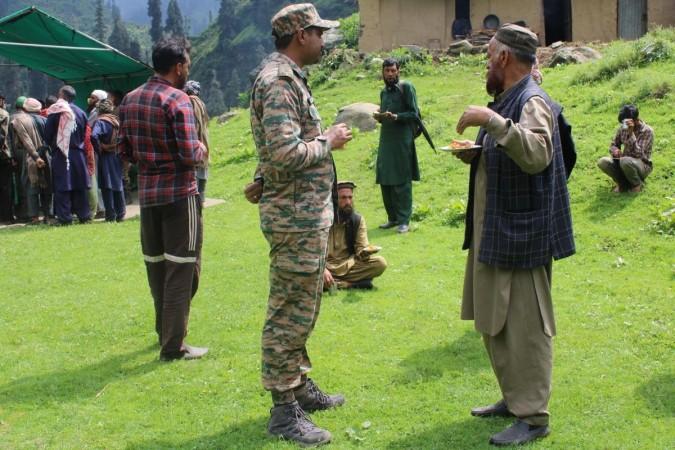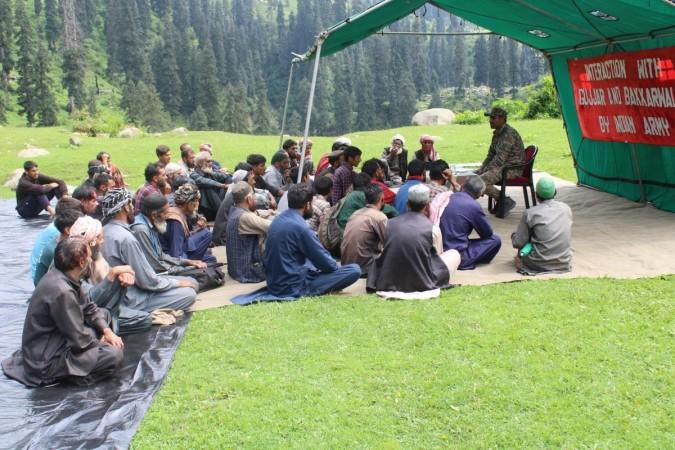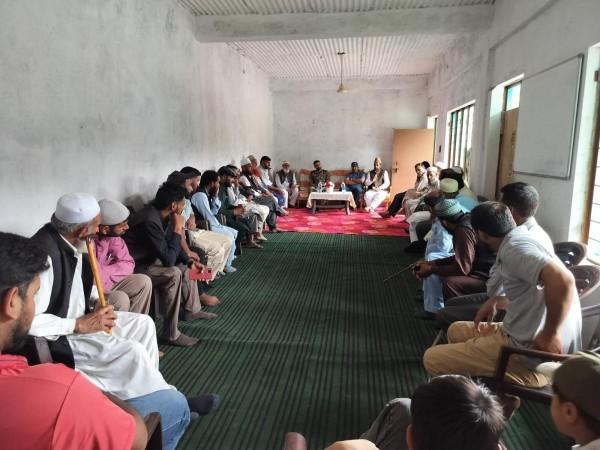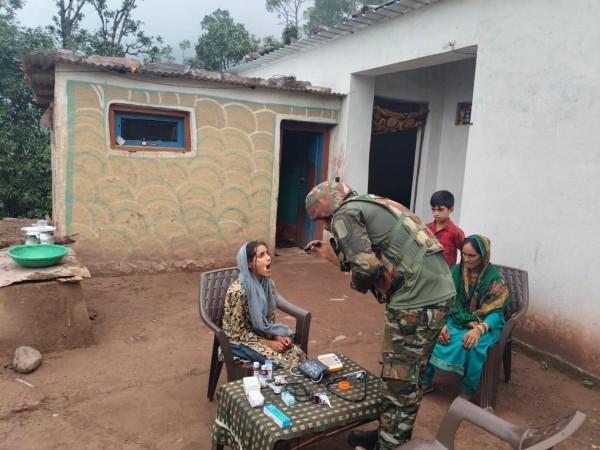
To monitor the movement of terrorists in far-flung and hilly areas during the summer, the Indian Army reached out to the nomadic Gujjar and Bakarwal communities in Kesri Hill village, located in the border district of Rajouri.
In recent years, terrorist activities have been reported in the twin border districts of Poonch and Rajouri. Today's interaction was part of a broader effort to seek the support of the nomadic community in reporting any suspicious movements in remote areas.
The Gujjars and Bakarwals are among the most rustic ethnic groups of the Himalayas and are regarded as one of the region's most historically rich tribes due to their distinct culture and ethnic traditions. These tribes comprise approximately 11 percent of the total population of Jammu & Kashmir, with a significant portion following a nomadic lifestyle.
Each year, the Gujjars and Bakarwals migrate to the higher reaches of the Pir Panjal ranges as part of their traditional seasonal migratory practice.

According to a defence spokesperson, the Indian Army interacted with members of these tribes on Monday at Kesri Hill village in Rajouri as part of its ongoing efforts to stay connected with the community and address their concerns.
"A total of 56 Gujjars and Bakarwals attended the event. The interaction aimed to understand the challenges faced by the community during their seasonal migration, including documentation requirements, awareness about the Forest Rights Act of 2006, and the education of their children," the spokesperson said.
He added, "The locals appreciated the Indian Army's efforts in organizing such a unique event during the migratory season and for listening to the issues and concerns of the community."
This initiative by the Indian Army is expected to further strengthen the longstanding bond between the Awam (people) and the Army and significantly benefit the Gujjar and Bakarwal communities.
Amity meeting at Lassana, Poonch
The Army also organised an amity meeting with the local residents of Lassana in Poonch district. This initiative was part of the ongoing effort to extend the area of domination patrols and address local concerns.
The meeting served as a platform for informal interaction, easing local tensions and discussing the prevailing security situation. It provided an opportunity for residents to openly address various issues they face within the area of responsibility.

"The role of the Army and Awam to fight together against terrorism in the region was the key highlight during the meet", Jammu-based defence spokesperson Lt Col Suneel Bartwal said.
"The opportunity was also utilised to provide medical aid to the locals. Attendees expressed appreciation for the Indian Army's efforts to reach out to the locals. A total of 47 individuals were present. They commended the initiative as a valuable confidence-building measure", he said.
Medical camp organized for villagers in Rajouri
Meanwhile, the Indian Army conducted a medical patrol in Songri village, Rajouri district, on Monday, providing free medical aid and treatment to 32 villagers.
The medical patrol, comprising Army medical personnel, is part of the Army's ongoing outreach to remote areas, aimed at delivering essential medical services to those in need.

The initiative is designed to build trust and reinforce the Army's bond with local communities while ensuring their health and well-being. The patrol included medical check-ups, consultations, and the distribution of free medication, addressing a variety of health concerns.
The effort was well-received by the villagers, who expressed their gratitude for the Army's continued support and care.
"The Indian Army's medical patrol initiative demonstrates its commitment to serving the nation and supporting local communities, particularly in remote and inaccessible areas," said Jammu-based Defence Spokesperson Lt. Col. Suneel Bartwal. He added, "By providing essential medical services, the Army aims to improve the health and well-being of the local population and foster a sense of trust and cooperation."

















